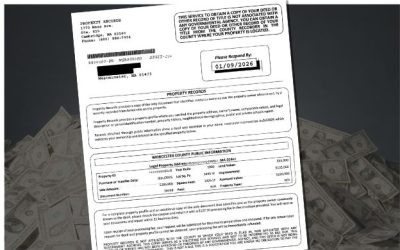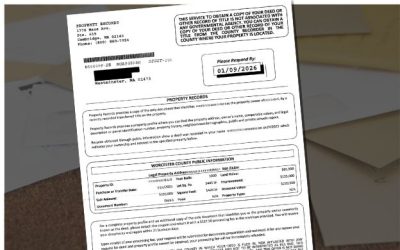
Jun 19, 2025 | Around The Home, Around The Hoome, Artificial intelligence, Buying Real Estate, Chapter 7 Bankruptcy, Consumer Tips, Credit Scoring, Fair Housing, Federal Reserve, FHFA, Financial Crisis, Financial Fraud, Financial Reports, Foreclosure, Happy Thanksgiving, Holidays, Home Building Tips, Home Buyer Tips, Home Buying Tips, Home Care, Home Care Tips, Home Closings, Home Decorating, Home Financing Tips, Home Maintenance, Home Mortgage, Home Mortgage Tips, Home Seller Tips, Home Selling Tips, Home Tips, Home Values, Homebuyer Tips, Homeowner Tips, Housing Analysis, Housing Market, Interesting Stuff, Investment Properties, Legislation, Market Outlook, Mortagage Tips, Mortgage, Mortgage Guidelines, Mortgage Lenders, Mortgage Rates, Mortgage Tips, mortgage-rates-whats-ahead-september-17-2012, News, Organization Tips, Personal Finance, Probate Law, Rankings, Real Estate, Real Estate Agent Information, Real Estate Definitions, Real Estate Tips, Real Estate Trends, Realtors, Selling Real Estate, Selling Your Home, Short Sales, Statistics, Success, Taxes, The Economy, Title Insurance
Whether you’re buying with cash, investing from abroad, transferring property to a family member, or just trying to close without a headache, you’ll want to know what can trigger federal scrutiny — and how to stay off the radar.
From flagged wire transfers and shell companies to gift-of-equity sales and land near military zones, this isn’t your average title-and-keys situation.
It’s real estate with a side of national security, tax enforcement, and financial crime prevention.
Is Big Brother Watching Your Home Sale?
What Buyers and Sellers Should Know About Federal Oversight
You’re Not Paranoid — They Might Actually Be Watching
What you didn’t know on how federal agencies keep tabs on select real estate transactions.
Your Closing Packet Could Be a Federal File
How Your Paper Trail Might Raise Red Flags — And What You Can Do About It
What the FBI, IRS, and Homeland Security
Could See in Your Closing Docs
We’re unpacking what agencies might spot inside your deal’s fine print.
Caught in the Crosshairs? What Triggers Federal Interest in Your Home Sale
The Top Red Flags That Could Invite a Closer Look from Washington
Cash, LLCs, or Land Near a Base? You Might Just Be a Target
The warning signs that put your deal on the government’s radar — and how to stay clear.
Follow the Money: How the IRS Tracks Financial Crimes Through Real Estate
From Unreported Income to Shell Game Schemes
— What IRS-CI Is Looking For
Your Closing Could Be an Audit Trigger — Here’s How the IRS Sees It
Explore the patterns, documents, and loopholes that turn ordinary deals into criminal cases.
Providing title, escrow, closing and settlement services to clients throughout Massachusetts and New Hampshire
“As a realtor, the Rocheford team went above and beyond to make sure my client was not only protected from a legal standpoint but also operated in a timely manner to execute the sale of my client’s dream home.
Thank you for the great experience for myself and my client! Looking forward to our next deal together!”
Realtor®
“I don’t usually use attorneys that often. But if an attorney is needed, I couldn’t recommend this law office enough. I always pride myself on responding quickly to emails and calls, but I was in awe of how fast paralegal Robert Heckman would respond to us. We sold our house a couple months ago and then did a two-part land swap with neighbors and my folks, and both transactions were seamless, including coming in to sign paperwork.
In short, if you need a law office that is responsive and attentive to detail, definitely consider them!”
Leominster, MA
“Excellent, conscientious and professional.
The communication throughout our Real Estate transaction was better than expected. We thought the fee to be very reasonable considering the work accomplished on our behalf. The law office handled the entire closing without us having to be in attendance….as we requested. I have had experience with very competent lawyers and law firms as the result of my previous profession. I would place this law office right up there among the best in their real estate field of expertise and surprisingly at very reasonable and affordable rates/fees.”
Buzzards Bay, MA

Jun 19, 2025 | Federal Reserve, Financial Fraud, Home Buyer Tips, Home Mortgage, Homebuyer Tips, Mortgage, Realtors, Selling Real Estate, Selling Your Home, Taxes, The Economy
Your Closing Could Be an Audit Trigger — Here’s How the IRS Sees It
When most people think of the IRS, they imagine audits and paperwork — not criminal agents working alongside the FBI and Homeland Security. But the IRS-Criminal Investigation Division (IRS-CI) is a powerful enforcement arm of the federal government, and real estate is one of its favorite trails to follow.
From luxury home purchases with unexplained funds to “gifted” equity that isn’t reported properly, the IRS-CI routinely uncovers criminal tax activity by analyzing real estate transactions. If you think your closing statement is just a formality — think again.
Real Estate as a Laundering Tool: Clean Property, Dirty Money
One of the most common IRS-CI cases involves individuals or entities using real estate to hide the source of illicit income.
Common Red Flags:
- Homes purchased with cash not supported by reported income
- Funds layered through multiple entities or relatives
- Repetitive buying and selling at inflated or deflated prices
Learn how IRS-CI tracks financial crimes through real estate
“Gift of Equity” Deals with Missing Paper Trails
It’s common in family-to-family sales to offer a discount — a “gift of equity.” But when these transfers aren’t properly documented, they can flag problems on both income tax and gift tax returns.
Triggers Scrutiny When:
- No gift letter is included in the mortgage or closing file
- Gift exceeds the annual IRS gift exemption and is not reported via Form 709
- Property is sold well below market value without explanation
IRS explanation of gift tax rules: When does a gift of equity trigger tax obligations?
Structuring or Smurfing Through Real Estate
IRS-CI also tracks “structuring,” also known as smurfing — where large sums of cash are broken into smaller amounts to avoid bank reporting thresholds.
How it Appears in Real Estate:
- Multiple down payments from different accounts or people
- Several transfers under $10,000 leading up to a purchase
- Sudden influx of funds from unrelated sources close to closing
These patterns are especially suspicious in all-cash or entity-based purchases.
Shell Companies and Fake Deductions
If the property is being purchased or sold through an LLC or trust, the IRS wants to know who actually controls the asset — especially when tax deductions or depreciation are claimed.
Triggers Scrutiny When:
- Owner hides behind multiple corporate layers
- Rental property expenses are exaggerated or fabricated
- Pass-through income isn’t declared properly
FinCEN’s Corporate Transparency Act ties directly into this enforcement
Review new rules on beneficial ownership disclosure
What This Means for Buyers, Sellers, and Agents
Whether you’re transferring a condo to your niece or selling a vacation home at a discount, the IRS-CI may see more than you expect. And in complex deals — especially those involving cash, gifts, or multiple parties — you could easily trigger review without realizing it.
IRS-CI agents don’t conduct routine audits — they build criminal cases. Your best protection is documentation, legal accuracy, and transparency.
Don’t Let a Paper Mistake Become a Tax Investigation
At The Law Office of David R. Rocheford, Jr., P.C., we guide every transaction with tax compliance in mind. Whether you’re transferring property to family, buying with equity, or structuring a trust sale — we help you stay within IRS guidelines and out of trouble.
Providing title, escrow, closing and settlement services to clients throughout Massachusetts and New Hampshire
“I would highly recommend David as a closing attorney. I have known David and have been using his office for many years. David’s professionalism when dealing with me, my closing department and most especially my clients has been always exemplary.”
SENIOR LOAN OFFICER, SHAMROCK FINANCIAL SERVICES
“The Law Office of Attorney David R. Rocheford, Jr. is by far the most exceptional real estate law office that I have had the pleasure of working with. The professionalism is by far second to none.”
SENIOR LOAN OFFICER, SALEM FIVE MORTGAGE SERVICES
“Attorney David Rocheford has provided settlement and title services for me and Greenpark Mortgage several years. He has assisted all of my clients, including my family and friends with mortgage closings. Always providing excellent service. Reliable and trustworthy!”

Jun 19, 2025 | Buying Real Estate, Financial Fraud, Home Closings, Home Mortgage, Home Seller Tips, Realtors, Statistics, Taxes
Cash, LLCs, or Land Near a Base? You Might Just Be a Target
In today’s security-conscious environment, real estate deals aren’t just between buyers and sellers — they’re being watched, analyzed, and sometimes flagged by federal agencies. And while the average home transaction flies under the radar, certain combinations of factors can put your deal squarely in the government’s crosshairs.
This post outlines the most common red flags that trigger federal interest — not because you’ve done something wrong, but because your transaction fits a high-risk profile.
All-Cash Purchases Over Federal Thresholds
All-cash deals aren’t inherently suspicious — but they circumvent the checks that come with traditional financing. That’s why they’re monitored more closely, especially in certain cities.
Triggers Scrutiny When:
- Purchase occurs in a FinCEN Geographic Targeting Order (GTO) region (like Boston, Miami, NYC, etc.)
- Buyer uses an entity (LLC, trust, partnership) rather than a personal name
- No mortgage or lender involvement, making the source of funds opaque
Check if your city is on FinCEN’s GTO watchlist
Foreign Buyers Purchasing Near Sensitive Locations
If you’re selling land or property near a military base, seaport, or energy facility, and your buyer is a foreign national or foreign-controlled company, your deal may come under review.
Triggers Scrutiny When:
- Buyer is from a geopolitically sensitive country (e.g., China, Russia, Iran)
- Property is within 100 miles of a designated sensitive site
- Transaction lacks full ownership transparency
Learn how CFIUS flags foreign real estate transactions
Use of Shell Companies or Anonymous Trusts
The U.S. government is increasingly focused on beneficial ownership transparency — knowing who is actually behind the deal.
Triggers Scrutiny When:
- The entity used is registered in a secrecy jurisdiction (Delaware, Cayman Islands, etc.)
- There is no clear beneficial owner disclosed at closing
- Documents reference multiple layers of ownership
See how the Corporate Transparency Act impacts real estate deals
Unusual Transaction Patterns or Repeated Flipping
Agencies like the IRS and FBI monitor the real estate market for signs of fraudulent investment behavior or tax evasion schemes.
Triggers Scrutiny When:
- Property is bought and resold quickly at an inflated price
- There’s a series of transactions between related parties
- Funds move between multiple accounts or buyers during closing
FBI tips on recognizing property flipping fraud
Wire Transfers from High-Risk Countries or Banks
Closings often involve multiple wire transfers — but not all financial institutions are treated equally. Some are flagged for lax compliance standards or sanctions risks.
Triggers Scrutiny When:
- Funds are transferred from offshore accounts with unclear sourcing
- Transfers pass through non-U.S. banks flagged by the Treasury Department
- The transfer amount and origin don’t match the buyer’s stated income or citizenship
Check OFAC’s sanctions lists (used by Homeland Security and Treasury)
How to Avoid Red Flags — Without Wrecking Your Deal
You don’t need to avoid cash, trusts, or foreign buyers altogether — but you do need to approach them with transparency and legal oversight.
Here’s how to protect your closing:
- Use a qualified closing attorney who knows what will raise compliance concerns
- Disclose beneficial ownership if you’re buying through a business or trust
- Avoid unusual structuring (like passing ownership through a friend or nominee)
- Keep clean documentation for funds, identity, and intent
Smart Deals Don’t Get Flagged — They Get Cleared
At The Law Office of David R. Rocheford, Jr., P.C., we know how to structure your closing so that it passes every test — legal, financial, and federal. Whether you’re selling to a foreign buyer or buying with cash, we keep your transaction clean and compliant.
Providing title, escrow, closing and settlement services to clients throughout Massachusetts and New Hampshire
“I would highly recommend David as a closing attorney. I have known David and have been using his office for many years. David’s professionalism when dealing with me, my closing department and most especially my clients has been always exemplary.”
SENIOR LOAN OFFICER, SHAMROCK FINANCIAL SERVICES
“The Law Office of Attorney David R. Rocheford, Jr. is by far the most exceptional real estate law office that I have had the pleasure of working with. The professionalism is by far second to none.”
SENIOR LOAN OFFICER, SALEM FIVE MORTGAGE SERVICES
“Attorney David Rocheford has provided settlement and title services for me and Greenpark Mortgage several years. He has assisted all of my clients, including my family and friends with mortgage closings. Always providing excellent service. Reliable and trustworthy!”
Mar 22, 2022 | Taxes
 Even though owning a home comes with some significant expenses, some of them are tax-deductible. With many people looking for ways to lower their income tax, there are a few expenses tied to the house that every homeowner should consider. This could make a significant difference in their final tax bills, and it could lead to a large tax refund.
Even though owning a home comes with some significant expenses, some of them are tax-deductible. With many people looking for ways to lower their income tax, there are a few expenses tied to the house that every homeowner should consider. This could make a significant difference in their final tax bills, and it could lead to a large tax refund.
Home Repair Costs
There are a lot of people who need to make repairs to their houses during the course of the year. In particular, if you have recently purchased a house, you may need to do a bunch of repairs before you move in. Be sure to save any receipts tied to these home repairs, as many home repairs can be tax-deductible. For example, if there is a giant hole in the floor that you need to fix, this could be deductible on your taxes.
Interest on a Mortgage
At the end of the year, your lender should give you a document specifying all the interest you have paid on the mortgage. Generally, the first few payments of your mortgage are almost all interest. Then, the last few payments just before the mortgage is paid off are almost entirely principal. Mortgage interest is tax-deductible, and the lender should give you a statement totaling the interest you have paid during the course of the year.
Property Taxes
When the lender drafts the monthly payment out of your account, this should include property taxes as well as your monthly mortgage payment. Your property taxes may also be deductible on your taxes. Therefore, take a look at the statement given to you by the lender. See if there is a line for the total amount of property tax you have paid. This could add up to a few thousand dollars, and it could be tax-deductible.
Work With a Tax Professional
These are just a few of the many expenses tied to a house that a homeowner might be able to claim on their taxes. Anyone who is interested in claiming tax deductions related to a house should reach out to a tax professional who can help them. That way, everyone maximizes the amount of money they save on their taxes.
Mar 22, 2022 | Taxes
 Even though owning a home comes with some significant expenses, some of them are tax-deductible. With many people looking for ways to lower their income tax, there are a few expenses tied to the house that every homeowner should consider. This could make a significant difference in their final tax bills, and it could lead to a large tax refund.
Even though owning a home comes with some significant expenses, some of them are tax-deductible. With many people looking for ways to lower their income tax, there are a few expenses tied to the house that every homeowner should consider. This could make a significant difference in their final tax bills, and it could lead to a large tax refund.
Home Repair Costs
There are a lot of people who need to make repairs to their houses during the course of the year. In particular, if you have recently purchased a house, you may need to do a bunch of repairs before you move in. Be sure to save any receipts tied to these home repairs, as many home repairs can be tax-deductible. For example, if there is a giant hole in the floor that you need to fix, this could be deductible on your taxes.
Interest on a Mortgage
At the end of the year, your lender should give you a document specifying all the interest you have paid on the mortgage. Generally, the first few payments of your mortgage are almost all interest. Then, the last few payments just before the mortgage is paid off are almost entirely principal. Mortgage interest is tax-deductible, and the lender should give you a statement totaling the interest you have paid during the course of the year.
Property Taxes
When the lender drafts the monthly payment out of your account, this should include property taxes as well as your monthly mortgage payment. Your property taxes may also be deductible on your taxes. Therefore, take a look at the statement given to you by the lender. See if there is a line for the total amount of property tax you have paid. This could add up to a few thousand dollars, and it could be tax-deductible.
Work With a Tax Professional
These are just a few of the many expenses tied to a house that a homeowner might be able to claim on their taxes. Anyone who is interested in claiming tax deductions related to a house should reach out to a tax professional who can help them. That way, everyone maximizes the amount of money they save on their taxes.
Jun 22, 2021 | Taxes
 There are millions of homeowners that are parents waiting for their advance child tax credits to arrive; however, they might not be sure exactly how much money they are going to get. This makes it difficult to set a budget. Some parents could expect to receive $300 per month between now and December. The rest of the credit should arrive after filing their tax returns next year. How much will parents receive?
There are millions of homeowners that are parents waiting for their advance child tax credits to arrive; however, they might not be sure exactly how much money they are going to get. This makes it difficult to set a budget. Some parents could expect to receive $300 per month between now and December. The rest of the credit should arrive after filing their tax returns next year. How much will parents receive?
The Process Of Calculating A Child Tax Credit
Because of recent changes in federal tax laws, the expanded child tax credit has increased the limit from $2,000 (the limit in 2020) to a maximum of $3,600; however, not every parent is going to receive $3,600.
Children under the age of five years are eligible for the maximum amount of $3,600. Children who are in secondary school (between the ages of six and 17 years) are eligible for a maximum payment of $3,000 per child. Children who are 18 years of age or in college full-time (up to age 24) are eligible for a one-time payment of $500 each.
In addition, these payment amounts will vary depending on the adjusted gross income of the family. Keep in mind that these numbers are estimates only and could vary from family to family. Anyone with questions or concerns about how much money they are going to receive should speak with a tax professional for more information.
Will Expanded Child Tax Credits Be Expanded In The Future?
Fortunately, there are online payment portals available, saving families the trouble of filing an amended tax return for these payments; however, will these payments be extended into the future? There is a possibility that Congress could decide to extend the duration of monthly child tax credits in upcoming stimulus bills. With millions of people still collecting unemployment benefits, the government might be forced to extend child tax credits to make life easier for the millions of people who are suffering.
Right now, families should not assume these tax credits are going to get extended until Congress passes formal legislation. While the government might decide to pass another law similar to the American Rescue Plan, passed earlier this year, nothing is guaranteed. Families should budget for this year’s child tax credit accordingly.

















 Even though owning a home comes with some significant expenses, some of them are tax-deductible. With many people looking for ways to lower their income tax, there are a few expenses tied to the house that every homeowner should consider. This could make a significant difference in their final tax bills, and it could lead to a large tax refund.
Even though owning a home comes with some significant expenses, some of them are tax-deductible. With many people looking for ways to lower their income tax, there are a few expenses tied to the house that every homeowner should consider. This could make a significant difference in their final tax bills, and it could lead to a large tax refund. Even though owning a home comes with some significant expenses, some of them are tax-deductible. With many people looking for ways to lower their income tax, there are a few expenses tied to the house that every homeowner should consider. This could make a significant difference in their final tax bills, and it could lead to a large tax refund.
Even though owning a home comes with some significant expenses, some of them are tax-deductible. With many people looking for ways to lower their income tax, there are a few expenses tied to the house that every homeowner should consider. This could make a significant difference in their final tax bills, and it could lead to a large tax refund. There are millions of homeowners that are parents waiting for their advance child tax credits to arrive; however, they might not be sure exactly how much money they are going to get. This makes it difficult to set a budget. Some parents could expect to receive $300 per month between now and December. The rest of the credit should arrive after filing their tax returns next year. How much will parents receive?
There are millions of homeowners that are parents waiting for their advance child tax credits to arrive; however, they might not be sure exactly how much money they are going to get. This makes it difficult to set a budget. Some parents could expect to receive $300 per month between now and December. The rest of the credit should arrive after filing their tax returns next year. How much will parents receive?